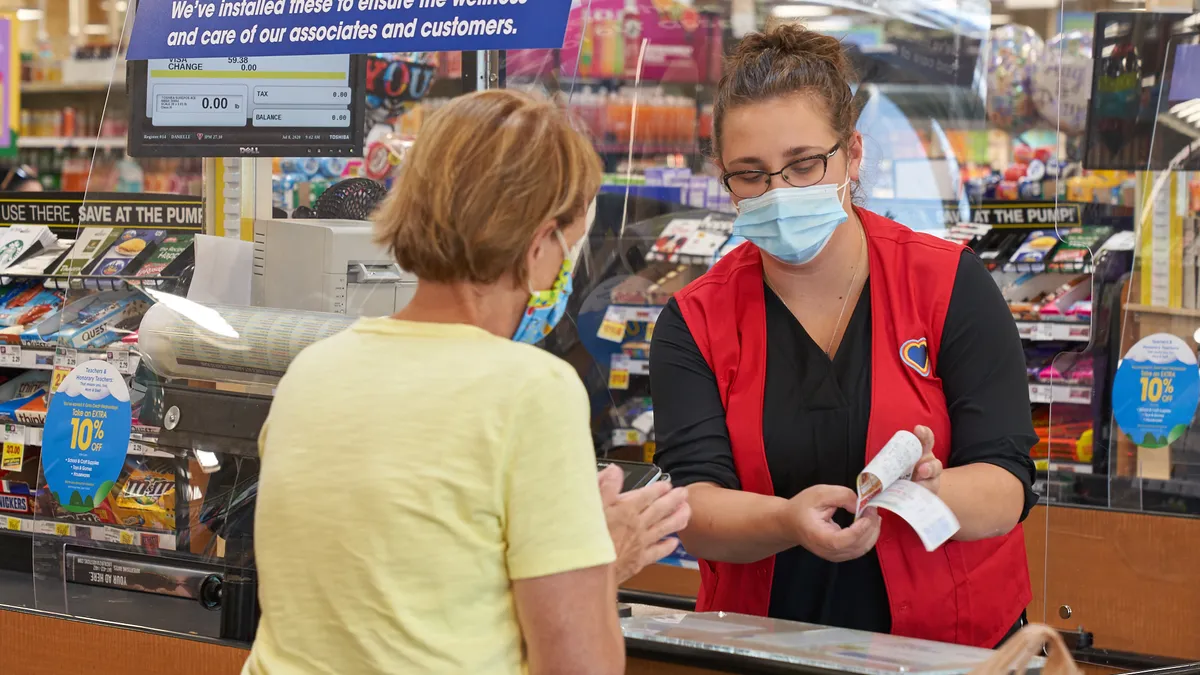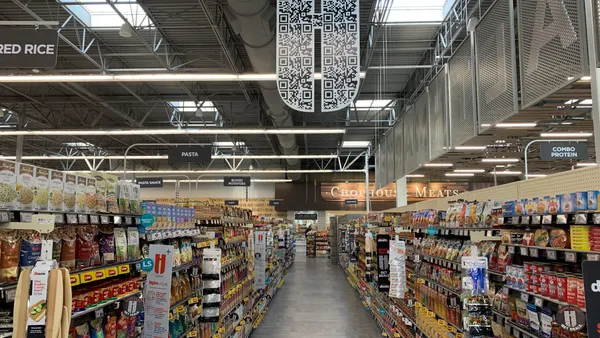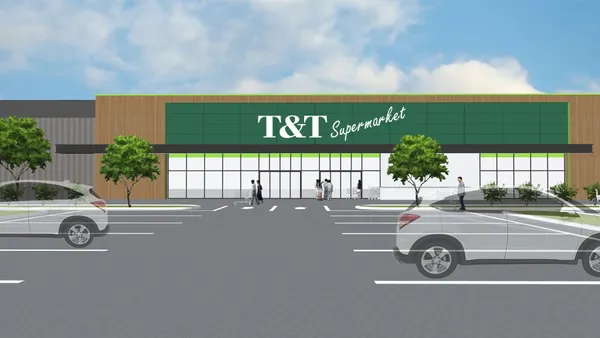Dive Brief:
- As the COVID-19 pandemic continues and the busy holiday season approaches, the National Retail Federation (NRF) Foundation announced Oct. 15 the launch of two new credentials in its RISE Up program — retail operations and customer conflict prevention. The credentials are geared toward front-line retail employees of small and mid-size companies that don't have learning and development teams, according to the NRF Foundation.
- The retail operations credential, sponsored by American Express, provides training on safety protocols. Participants will learn how to recognize COVID-19 symptoms, take appropriate actions if exposed to the novel coronavirus and understand the Centers for Disease Control and Prevention's (CDC) best health practices and tools, the NRF Foundation said.
- To create the customer conflict prevention credential, NRF Foundation partnered with the Crisis Prevention Institute, which specializes in verbal de-escalation training. Customer-facing retail workers and job seekers will learn how to de-escalate situations such as a customer's refusal to adhere to mask requirements, customer-to-customer conflicts and line management, the NRF Foundation said. "An informed workforce will build customer confidence and show local and state governments that retailers are taking all steps possible to prevent the spread of COVID-19," NRF President and CEO Matthew Shay said in a statement.
Dive Insight:
At the onset of the pandemic, many retailers in North America temporarily closed stores and reduced hours to prevent the spread of the novel coronavirus, according to reports from Retail Dive. In April, both the NRF and Retail Industry Leaders Association released a Blueprint for Shopping Safe that outlined a phased-in approach to reopening retail. But employees in essential retail industries remained working on the front lines.
Balancing worker safety with significant increases in demand was a challenge. Thousands of Instacart workers walked off the job on March 30 demanding more protections. In April, the company began distributing health and safety kits to its full-service shoppers.
H-E-B faced pushback from more than 44,000 people after the Texas grocery store chain said in early June that it would no longer mandate that customers wear masks.
During the summer, the United Food and Commercial Workers Union published a call from a group of more than 100 health experts pushing for all 50 states to require face coverings in public spaces.
In the spring, many workers at meat-processing plants across the U.S. tested positive for novel coronavirus — some of them dying, according to Food Dive. The outbreak resulted in a temporary shutdown of production, but the plants eventually reopened following an executive order by President Donald Trump.
More and more grocers and retailers are turning to mask mandates to keep their employees and shoppers safe. In March, Walmart said it would start doing temperature checks on employees and also provide them with gloves and masks.
Retailers will need to rely on front-line workers to balance serving customers and enforcing face mask policies, sources previously told HR Dive. But there have been reports of conflicts in enforcing these protocols. The customer conflict prevention credential would provide employees the training needed to continue operating and serving customers safely, Shay said.














